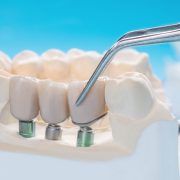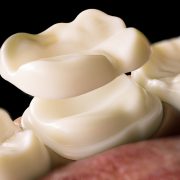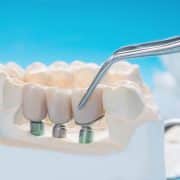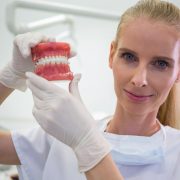What to Expect When You Need a Dental Crown
Do you have any teeth that are damaged or worn? Leaving them as is can make them more vulnerable to additional damage or infections. But a dental crown can help protect them and restore their functionality. At Sand Dollar Dental, our dentists in Foley, AL, offer dental crowns as a tooth restoration option. Here’s what happens when you visit us for this treatment!
Tooth Prep
We have to take steps to make sure your tooth is all set for a crown. This typically means eliminating decayed parts and removing a small amount of enamel so the crown has room. Once your tooth is ready, we’ll take impressions that we use to have a custom dental crown made.
Temp Crown
In some cases, we might place a temporary crown on your tooth until the new one is ready. Having this crown on offers some protection, though it may not fit perfectly since it’s not a custom one.
Permanent Crown
When your new crown is ready, we’ll have you visit us again. During this appointment, we’ll take off the temporary crown and put the new one on. Our dentists make sure it fits properly on your tooth.
Crown Care
Before leaving our office, we’ll give you guidance on how to care for your new dental crown. Keeping it in good condition will help it last longer over the years for ongoing protection.
Visit Our Office for Dental Crowns!
Have you decided to have a tooth restored? Our dental crowns in Foley, AL, offer a great way to improve the appearance of worn or damaged teeth and make them functional again. Our dentists at Sand Dollar Dental can answer any other questions you have about this process!









